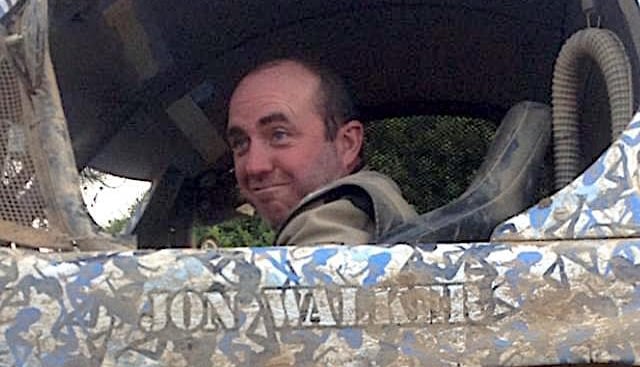Click Here to View This Page on Production Frontend
Click Here to Export Node Content
Click Here to View Printer-Friendly Version (Raw Backend)
Note: front-end display has links to styled print versions.
Content Node ID: 408543
On Friday afternoon local time, a Guam federal district court jury found Hansen Helicopters and its CEO, John D. “Jon” Walker, guilty on all remaining 110 charged counts related to conspiracy; defrauding the FAA and the NTSB; bribery; aircraft parts fraud, causing serious bodily injury and death; falsification of aircraft registration; employing unlicensed mechanics and pilots; wire fraud; and money laundering.
Sentencing is scheduled for December 8, and a motion will be heard on Monday as to whether to remand Walker into custody. He has been free on bail since being initially charged in May 2018 and potentially faces life in prison.
Additionally, the government is seeking forfeiture of all of Hansen’s and Walker’s assets related to what it charged is $400 million worth of fraud tied to the convictions. 
Walker purchased Hansen, based in Harmon, Guam, in 1998 after working for the company as a pilot, mechanic, and director of operations. He then grew the company to a fleet of 48 helicopters. The company provided fish spotting helicopters, mainly vintage Hughes 369/OH-6A models, along with pilots and mechanics, to tuna boats in the Western Pacific on contracts that ran $40,000 per month per helicopter, with gross receipts of over $20 million annually.
Virtually all of the profits went to Walker, who used them in part to finance his pursuit of nationally-ranked, off-road racing and acquire a fleet of eclectic personal aircraft based in Missouri, where he lived on a 5,000-acre farm. His personal aircraft included an Extra 300L, Beechcraft D17S Staggerwing, Stemme S10-VT motorglider, Beechcraft E90 King Air, North American T-28B, Aviat A-1B, Highlander, Piper J3C-65, and Bell 47D1.
The trial of Hansen, tried as an entity, and Walker, tried as an individual, were severed from that of other senior Hansen executives and suppliers. Proceedings began in February with a trial that was expected to last just three weeks but instead languished on a stop-and-start basis for eight months.
Walker’s local attorney died before the trial. Defendant Marvin Reed, Hansen’s executive v-p, turned state’s evidence in exchange for immunity. Reed is seriously ill, as are defendants Phillip “Turner” Kapp, Hansen’s former director of maintenance, and Randall Rogers, who ran Vanguard Aviation in Valdosta, Georgia.
Rogers and his company are charged with a variety of offenses related to the assemblage of what federal prosecutors called “Frankenstein helicopters”—aircraft for Hansen that were previously classified as destroyed and later rebuilt via data-plate swapping and other illegal means. Rogers recently entered hospice care.
Charges against another defendant, Frank F. Litkei Sr., were dismissed in 2021 after he died. Litkei’s company, Spares Inc., a machine shop based in Oregon, provided Hansen, at its direction, with unapproved tail rotor pitch change link assemblies that were tied to several crashes. Last week, during a status hearing, the court was attempting to discover if Spares Inc. remained a going concern.
The sentencing of former FAA aircraft inspector Timothy Cislo is expected later this year. Cislo pleaded guilty to three counts of honest services fraud in 2018 related to receiving bribes from Hansen. While he could face up to 20 years imprisonment and $750,000 in fines, he is expected to receive leniency in exchange for his testimony.
During the trial, Cislo testified that he received “money and hookers,” as well as a vintage Taylorcraft airplane, from the company in exchange for falsifying airworthiness certificates for its helicopters. In subsequent testimony, former NTSB accident investigator Jeff Guzzetti said he believed that most of Hansen’s fleet was “not airworthy.”
Attorneys for Hansen and Walker opted not to put on a defense, but rather to punch holes in the prosecution’s evidence. But there was simply too much evidence, including volumes of highly incriminating e-mails between Hansen executives detailing Cislo's bribery and referring to FAA inspectors as "donkeys."
In her closing argument to the jury, lead prosecutor Marie Miller said, “This case is about one thing. It’s about greed. It’s about people who put profit over other people. It’s about people who violated the law repeatedly, knowingly, intentionally. And without any regret.”